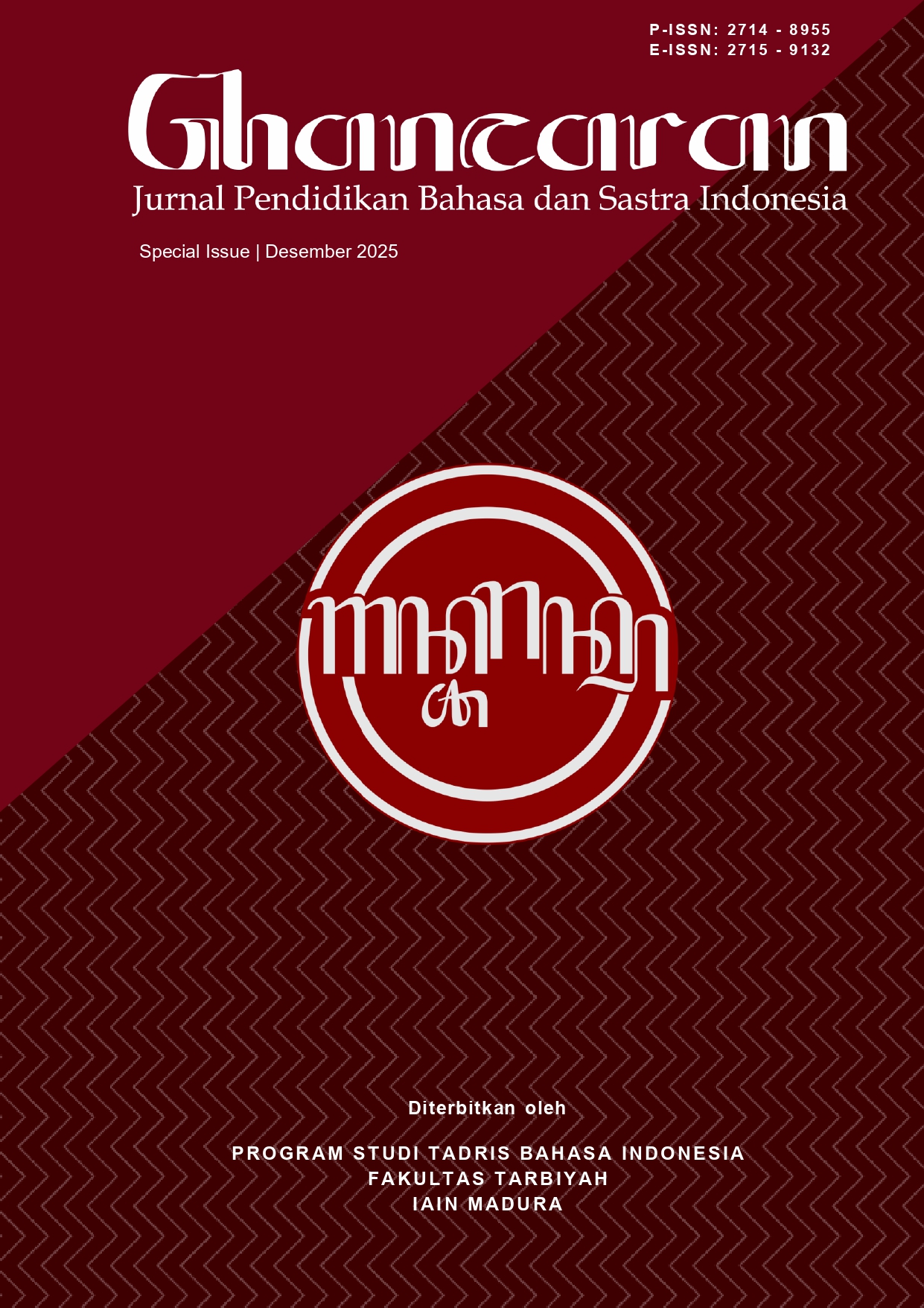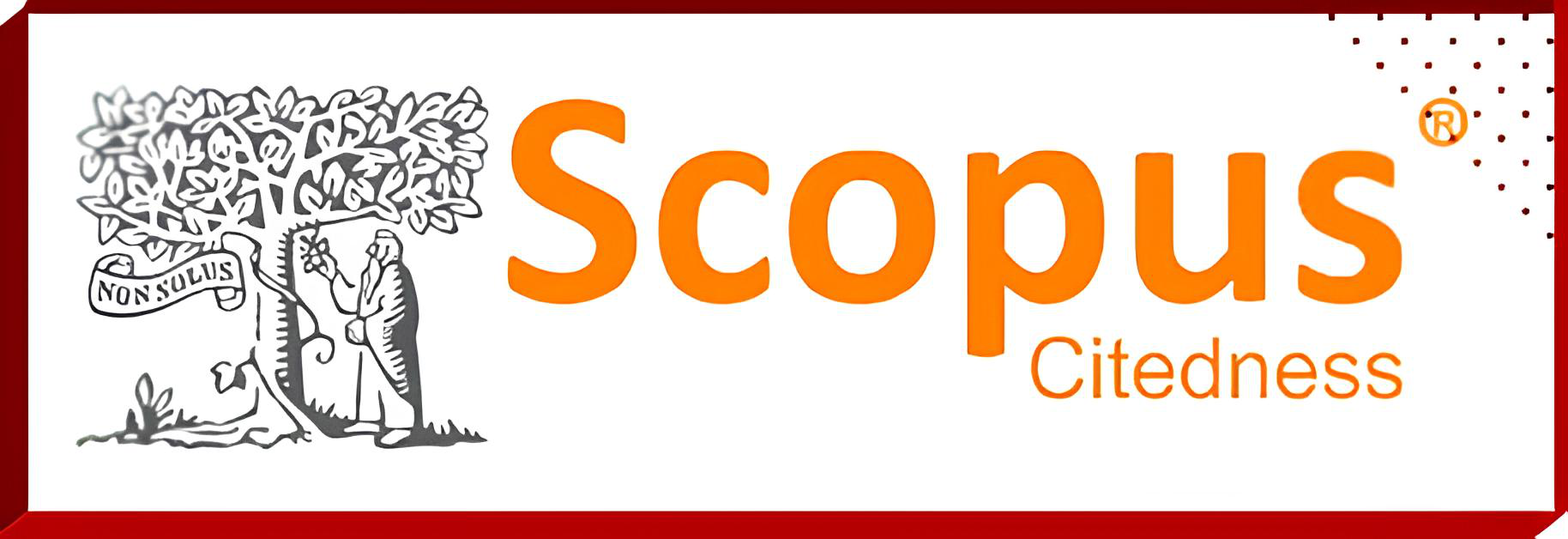Estô dalam Komunitas Blater Madura: Perspektif Linguistik Digital dan Implikasinya terhadap Pendidikan Islam
 Abstract views: 95
,
Abstract views: 95
,
 PDF downloads: 70
PDF downloads: 70
Abstract
The traditional value system of estô, which emphasizes selfless service, solidarity, and respect within the blater Madura community, confronts challenges in its dissemination and adaptation in the digital era. This study aims to examine the influence of estô within the blater community, with a specific focus on the role of the kiai in guiding these values for Islamic communication and education. This study utilized a qualitative descriptive exploratory methodology, with data collected through interviews, participant observation, and document analysis. The findings indicate that digital linguistics plays a significant role in expanding religious understanding; however, challenges persist in maintaining conformity with correct Islamic principles. The value system of estô can be preserved in the digital era through appropriate adaptation, where technology has the potential to enrich religious education when balanced with the judicious oversight of the kiai. This research contributes to the development of technology-based Islamic education and provides recommendations for integrating digital platforms with Islamic principles in pedagogical contexts.
Downloads
References
Abdurrahman, Q., & Badruzaman, D. (2023). Tantangan dan Peluang Dakwah Islam di Era Digital. KOMUNIKASIA: Journal of Islamic Communication and Broadcasting, 3(2), 152–162.
Adelliani, N., Sucirahayu, C. A., & Zanjabila, A. R. (2023). Analisis Tematik pada Penelitian Kualitatif. Penerbit Salemba.
Anggit Pamungkas, U. H. (2023). Tantangan Dakwah melalui Media Sosial di Era Media Baru. ARKANA, Jurnal Komunikasi Dan Media, 02, 146–158.
Bawamenewi, A., & Waruwu, Y. (2023). Pengembangan Media Pembelajaran Bahasa melalui Transformasi Digital Berbasis E-Learning. GHANCARAN: Jurnal Pendidikan Bahasa Dan Sastra Indonesia, November, 58–66.
Dewi, A. C. (2025). Bahasa dalam Media Sosial : Kajian Linguistik Digital terhadap Gaya Bahasa Generasi Milenial dan Gen Z. Jurnal Kajian Pendidikan Dan Cakrawala Pembelajaran, 1(1), 57–67.
Fathoni, T. (2024). Konsep Solidaritas Sosial dalam Masyarakat Modern perspektif Émile Durkheim. 6(2), 129–147.
Ida Fitri, P., Nurrohim, A., Muhammad Tsalis, R., Fahmi, F., Alexander, B., Yusdi, H., Indah Gilang, P., Binti, N., Taqna’in, Shafwatun, N., & Hanifah, A. (2025). Revolusi Digital dalam Studi Tafsir Al-Qur’an: Peluang dan Tantangan. Jurnal Eksplorasi Penelitian Risalah Islam, 9(1), 10–17.
Jannah, H. (2015). Kyai, Perubahan Sosial dan Dinamika Politik Kekuasaan. Fikrah - Jurnal Ilmu Aqidah Dan Studi Keagamaan, 3(1), 157–176.
Jannah, H. (2019). Pondok Pesantren Sebagai Pusat Otoritas Ulama Madura. Jurnal Al-Hikmah, 17(1), 91–108.
Kosim, M. (2012). Kyai and Blater (Local Elite in Madurese Society). Karsa: Jurnal Sosial Dan Budaya Keislaman, 12(2), 150–160.
Listiana, H., & Muhlis, A. (2024). Penggunaan Bahasa Gaul di Lingkungan Mahasiswa IAIN Madura: Perspektif Interaksionisme Simbolik. 165–174.
Listiana, H., & Nada, Z. Q. (2024). Estô dalam Masyarakat Madura : Peran Kiai dan Blater dalam Mempertahankan Solidaritas Sosial di Era Modern. 21(1), 114–128.
Listiana, H., Sri, N., & Nada, Z. Q. (2024). Praktik Estôh dalam Komunitas Blater Madura (1st ed.). Madza Media.
Malindra, Muslimin, A., & Syaifullah, M. (2025). Pendidikan Keagamaan di Masyarakat Multikultural : Peran Sosial dan Keagamaan Kyai Muhammad Sukemi di Yosodadi Metro. Indonesian Journal of Educational Management and Leadership, 03(01), 9–26.
Manan, A. (2023). Pendidikan Islam dan Perkembangan Teknologi : Menggagas Harmoni dalam Era Digital. Jurnal Pendidikan dan Kebudayaan, 5(1), 56–73.
Mudjiyanto, B. (2018). Tipe Penelitian Eksploratif Komunikasi. Jurnal Studi Komunikasi dan Meida, 22(1). 65–74.
Mustofa, I., Yusuf, A., Firmansah, D., & Afham, M. A. (2024). The Transformation of Islamic Education in the Digital Era: Utilizing Technology for Instilling Islamic Values. Bunayya: Islamic Education and Teaching Journal, 1(4). 62–81.
Saumantri, T. (2022). Konsumerisme Masyarakat Kontemporer dalam Pemikiran Jean Baudrillard. Paradigma: Jurnal Filsafat, Sains, Teknologi, Dan Sosial Budaya, 28(2), 56–68.
Supriyono, W. (2025). The Urgency of WhatsApp in Online Learning : Elaboration and Perception of Islamic Religious Education Teachers in Indonesia. Eduprof Islamic Education Journal, 6(2), 136–149.
Syamsuddin, M. (2015). Elit Lokal Madura: Sisi Kehidupan Kaum Blater. Jurnal Lektur Keagamaan, 13(1), 157–182.
Tugino, Munadi, M., & Khuriyah. (2023). Pengaplikasian Teknologi Digital dalam Pembelajaran PAI dan Bahasa Arab. INNOVATIVE: Journal of Social Science Research, 3(2), 78.
Yusuf, M. (2024). Penggunaan Teknologi Augmented Reality dalam Pembelajaran Tafsir Al-Qur’an pada Lembaga Pendidikan Islam. Academicus: Journal of Teaching and Learning, 3(1), 1–7.
Copyright (c) 2025 GHANCARAN: Jurnal Pendidikan Bahasa dan Sastra Indonesia

This work is licensed under a Creative Commons Attribution-ShareAlike 4.0 International License.
Ghancaran: Jurnal Pendidikan Bahasa dan Sastra Indonesia uses an Open Access Policy under the Creative Commons Attribution-ShareAlike 4.0 International License. Authors publishing in this journal agree to the following terms:
- Ghancaran Journal holds the copyright and grants the journal rights for first publication with the work simultaneously licensed under a

The work is distributed under Creative Commons Attribution-ShareAlike 4.0 International License which allows others to share, copy, and redistribute the material in any media or format and adapt, remix, change, and develop the material even for commercial purposes, as long as it is stated credit and license derivative works under similar terms. - Authors may make additional contractual arrangements for non-exclusive distribution of the journal's published work version.
- Authors are permitted to post their work online (e.g., in institutional repositories or on their websites) before and during submission, as doing so may lead to productive exchange.



















